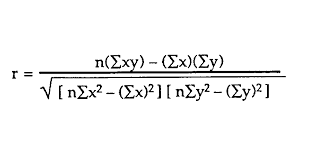Chapter 5 - Correlation Coefficient
1/13
There's no tags or description
Looks like no tags are added yet.
Name | Mastery | Learn | Test | Matching | Spaced |
|---|
No study sessions yet.
14 Terms
Correlation Coefficient
A single number describing a relationship
“How are two variables related
Correlation Coefficient Range
-1 to 1
Correlation Coefficient Limitations
only good for linear relationships
range restriction
outliers
Coefficient of determination
Percentage shared by two variables
how much variance in A is explainable by B
Reverse Causation
Causal direction could be opposite from what has been hypothesized
Reverse Causation
Predictor variable ← outcome variable
Reciprocal Causation
2 variables cause each other
spiral effect/cyclical
Reciprocal Causation
predictor variable ← outcome variable
predictor variable → outcome variable
Common Causation
3rd variable influencing both variables
spurious correlation
Common causation
predictor variable ← common cause → outcome variable
Correlation Coefficient equation

Reverse Causation example
Married people are more likely to be happy
alternate explanation: happy people are more likely to attract mates and to be married
Reciprocal Causation Example
marriage and happiness
self efficacy and performance
giving to charity and happiness
Common causation example
Ice cream sales and murder are positively correlated
third variable = heat